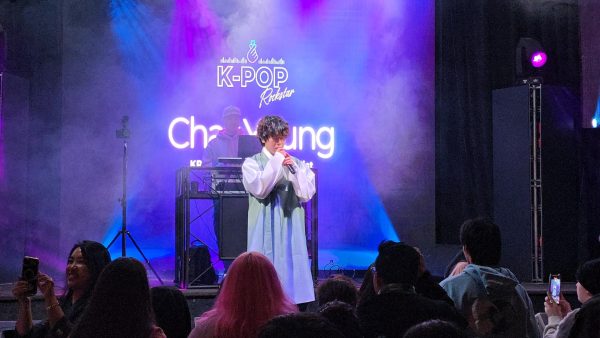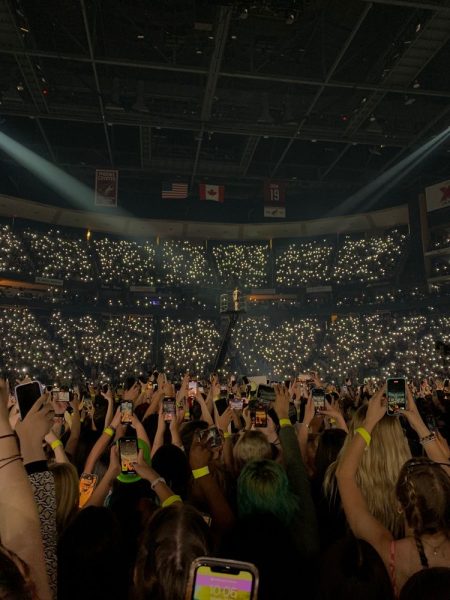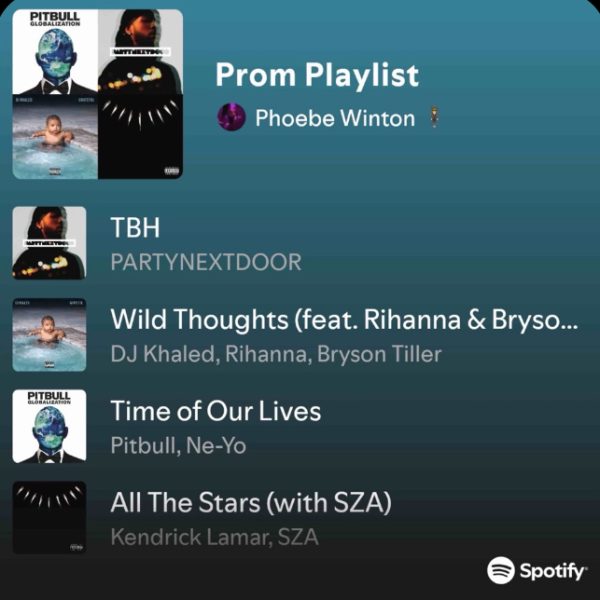We Love Death; We Need to Stop [OPINION]
17 young men and boys were killed and eaten. And people are romanticizing this.
Again, I take a look at Netflix’s newest series; one striking up a lot of internet controversy, but also some serious reevaluations into what’s okay for people to consume in the media.
“Monster: The Jeffrey Dahmer Story,” is a cinematic, and gruesome retelling of the mass serial killer, known for eating young men and boys, killing, and raping them.
“[…]It felt like reliving it all over again. It brought back all the emotions I was feeling back then,” said Rita Isbel, sister of 19-year-old Errol Lindsey, one of Dahmer’s victims, when talking about the series release.
Eric Perry, Rita and Errol’s cousin, tweeted about how Netflix, or most other documentaries, don’t reach out to family members in advance.
“Like recreating my cousin having an emotional breakdown in court in the face of the man who tortured and murdered her brother is WILD. WIIIIIILD,” Perry said in a tweet replying to the recreating of Rita Isbel’s victim statement.
The upset around Netflix’s show hasn’t been shared just by the victim’s family members, but also by many commenting on the outside too, as the disgusting humanization of killers continues.
“By being murdered, these people are robbed of a legacy. It doesn’t matter who they are, or what they did. They will always simply be a photo and a name in a lineup of victims,” Guardian Writer, Stuart Heritage wrote.
This isn’t just limited to Jeffery Dahmer; it stretches further out. Ted Bundy, in the film, “Extremely Wicked, Shockingly Evil and Vile,” stars Zac Efron as Bundy, the popular “High School Musical” actor.
The movie was sold to Netflix and overall generated 9.8 million dollars at the box office, with no specific counts of viewership. Monster: The Jeffrey Dahmer Story, in its first week already generated 196.2 million hours.
“It was difficult to view him as a serial killer, and his role as a villain was incredibly sexualized,” said Allison Wargo, a Rohnert Park resident,“[It] created a huge fandom behind it making girls want a serial killer as a boyfriend. It was a hard role to be taken seriously.”
Rohnert Park is a place where 7 or more girls were killed by a hitchhiker. Many suspect the likes of Ted Bundy to commit these crimes, though it’s still unsolved to this day.
“Night Stalker,” another Netflix show published in 2021, is a retelling of Richard Ramirez, who murdered 15 people throughout the 80s, which displays more ways people can romanticize these people.
Netflix, Netflix, Netflix.
Though Netflix hasn’t been the only place getting hit by the overwhelming question, “why do we still romanticize death,” many “True Crime” podcasts and shows have been scrutinized for this odd fantasy with death.
Over 73% of true crime viewers are women, according to the research paper, “The Podcast Consumer 2019″ by Boling and Hull, women, and roughly 51% of women are serial killer victims. Caroline Callicutt, a Garnet and Black writer said, “it is most often thought that women enjoy true crime so much because they think they can learn survival skills from it.”
“Murder media can operate psychologically like a fairy tale or a bedtime story, in that it may help people manage their fears within a narrative framework,” Wistar Murray wrote, a writer at Thriveworks. Marketed oftentimes towards women, “murder media” often is said to help protect or educate.
Many believe if you can avoid putting yourself in dangerous situations, such as those victims of killings had been in, they will be safer.
Though for one to describe it as a “fairy-tale” can often make the real-life consequences of these horrible stories forgotten.
When retelling a story of a serial killer, with an attractive main lead, the whole purpose of “helping the victim’s family,” and increasing awareness of the story, is thrown out the window.
Eric Perry tweeted, “if you’re actually curious about the victims, my family (the Isbell’s) are pissed about this show, It’s retraumatizing over and over again[.]”
As long as our love of death continues, the less we’ll love and cherish the memories of the people who’ve been affected by killers.
“It’s sad that they’re just making money off of this tragedy. That’s just greed. […]I don’t need to watch it. I lived it. I know exactly what happened,” Rita Isbel said.

Hi! I’m Evan, and this is my sophomore year at Grandview and my second year on The Chronicle Staff. I’m a part of the Opinions Department. My favorite...


![We Love Death; We Need to Stop [OPINION]](https://ghschronicle.com/wp-content/uploads/2022/10/Deickman_LoveDeath_10_03-895x900.jpg)



![Dream Week Diaries: GHS Pep Assembly for Matthew [PHOTO GALLERY]](https://ghschronicle.com/wp-content/uploads/2025/03/VAN_8543-600x400.jpg)

![A Vest Won’t Protect You [OPINION]](https://ghschronicle.com/wp-content/uploads/2025/09/KoltonZuckerVestPosterOffWhite-450x600.png)
![Executive Order: Ending Radical Indoctrination in K-12 Schooling [OPINION]](https://ghschronicle.com/wp-content/uploads/2025/04/Screenshot-2025-04-23-at-2.51.41 PM-600x337.png)



